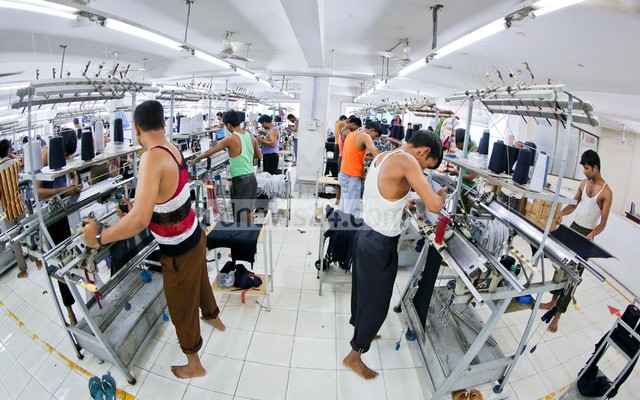Recognising that Bangladesh has made a good progress in its readymade garment sector, partners of ‘Bangladesh Sustainability Compact’ on Thursday said more need to be done in ensuring labour rights and trade union rights to overhaul the sector as it faced a severe blow because of Rana Plaza collapse in 2013.
At the second follow-up meeting of the Compact at a city hotel, they also acknowledged the importance for brands and retailers to adopt practices that promote responsible business conduct in global supply chains, and encouraged the brands and retailers to adopt a uniform code of conduct for factory audits in Bangladesh.
The Compact partners — Bangladesh government, the European Union, the United States and ILO — held the meeting to take the stock of progress in its implementation since its last meeting.
A joint statement issued after the meeting said the partners of the Compact recognised further the progresses made by Bangladesh since the last follow-up meeting towards meaningful and sustainable changes in the RMG industry in Bangladesh.
They appreciated the recent promulgation of implementing rules under the Bangladesh Labour Act, the near completion of initial safety audits by the government and hundreds of RMG factories, the launch of the ‘Better Work Bangladesh’ programme with ILO/IFC and the continuation of efforts to improve the capacity of the some organisations like DIFE, Fire Service and Civil Defence Department, Rajuk, through increase in staff and budgetary allocations.
The partners also focused on ensuring the trade union registration process carried out as a smooth and expeditious formality, in accordance with objective and transparent criteria. “Upgrade the (Bangladesh) Directorate of Labour with additional staff and resources to effectively investigate and prosecute unfair labour practices in a timely and transparent manner and promote harmonious industrial relations.
They also suggested adopting the necessary legislative changes to legal framework applicable in the EPZ to protect freedom of association and collective bargaining rights and ensure that such rights are commensurate with those provide in the national labour law, involving all stake holders and the ILO.
“Ensure the effective implementation of the Bangladesh Labour Act and its Rules, in line with the relevant ILO Conventions, including with regard to participation Committees and safety committees,” the joint statement said.
The Compact partners also stressed completing the recruitment of inspectors and ensuring effective inspections in all of the country’s active export-oriented RMG factories so that all workers of the sector are afford a safe working environment.
The joint statement said all partners noted the critical need to continue building capacity pf the regulatory authorities in Bangladesh responsible for occupational safety and health, electrical safety, and structural integrity so that they can fully and independently carry out their functions, as soon as possible.
Speaking at a press briefing, Commerce Minister Tofail Ahmed said he as well as all the partners of the Compact are very happy over the outcomes of the meeting. “All partners recognised that we’ve made a tremendous progress in the last one year in the RMG sector.”
Tofail thanked the US and the EU for remaining as vital trade partners of Bangladesh as they import billions of dollars of RMG products from here every year.
He also welcomed the association of Canada to the Compact and hoped it will continue to pursue the full implementation of the Compact as the country is another major importer of Bangladeshi RMG products.
Source: Prothom Alo










